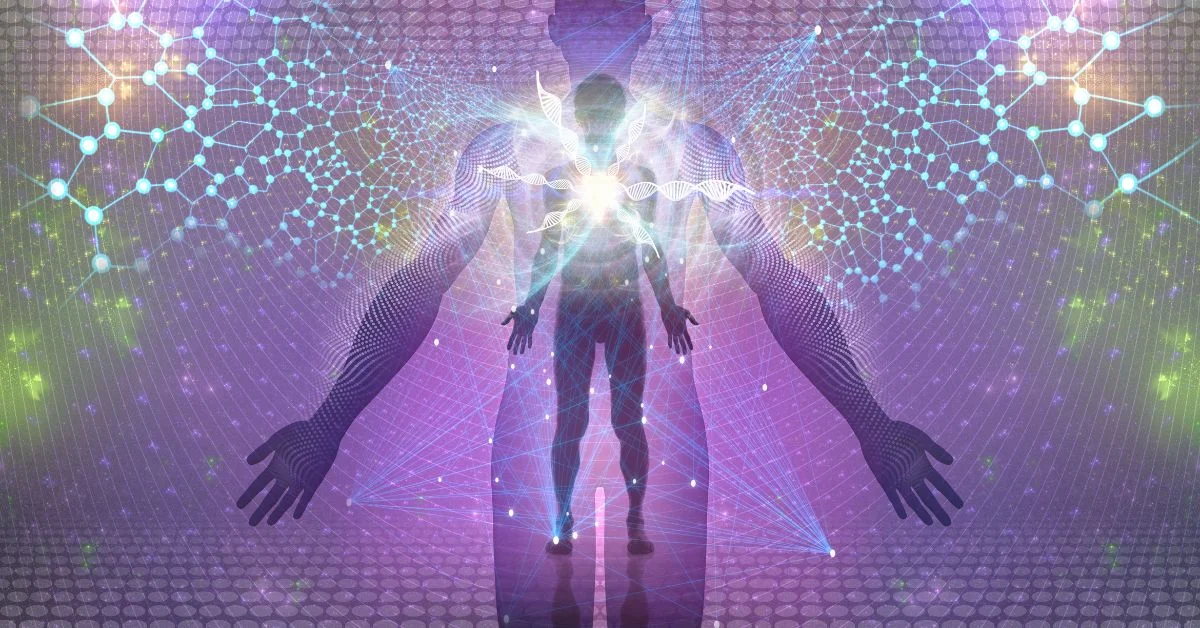In recent years, holistic therapies have gained significant attention for their ability to promote balance and well-being. One such powerful combination is a master Reiki session with bioresonance frequency therapy, offering a unique blend of energy healing and frequency-based treatments. But how does this innovative approach address physical, emotional, and mental health challenges?
This article explores the intricacies of this synergistic treatment, delving into its benefits, applications, and potential to transform health. Whether you’re seeking relief from chronic issues or aiming for a deeper connection to your inner self, this therapy might be the solution you’ve been searching for.
What is Bioresonance?
Bioresonance therapy is a non-invasive, energy-based treatment that uses electromagnetic frequencies to detect and correct imbalances in the body. Developed in the 1970s, it is based on the principle that every cell, organ, and system in the body emits specific frequencies. Disruptions in these frequencies often indicate health issues.
How Does It Work?
Bioresonance devices capture the body’s electromagnetic waves, analyze them for abnormalities, and emit corrective frequencies to restore balance. By targeting the root causes of imbalances, this therapy supports the body’s natural healing processes without invasive procedures or medication.
What Is a Master Reiki Session?
Reiki is an ancient Japanese healing technique that uses the practitioner’s hands to channel universal life energy into the recipient’s body. A master Reiki session is conducted by a highly experienced practitioner, capable of delivering advanced energy healing tailored to the individual’s needs.
Embracing a Holistic Approach to Health and Vitality
Combining Reiki with bioresonance frequency therapy takes a holistic approach to health by addressing both energetic and physical aspects of well-being. While Reiki focuses on balancing the body’s energy fields, bioresonance identifies and corrects specific disruptions at a cellular level.

Understanding Bioresonance Frequency Therapy
Applications of Bioresonance Therapy
- Treating Allergies and Sensitivities: Bioresonance is widely used to identify and mitigate allergic reactions by desensitizing the body to specific allergens.
- Pain Management: It is effective in reducing chronic pain by addressing inflammation and restoring cellular balance.
- Detoxification Support: The therapy enhances the body’s ability to eliminate toxins, improving liver and kidney function.
- Emotional and Mental Well-being: By harmonizing brainwave patterns, bioresonance helps alleviate anxiety, depression, and stress.
What Does Bioresonance Treat?
Bioresonance therapy has been applied in the treatment of numerous conditions, including:
- Skin disorders like eczema and psoriasis
- Gastrointestinal issues
- Autoimmune diseases
- Chronic fatigue syndrome
- Hormonal imbalances
The Synergistic Power of Combining Reiki and Bioresonance
When combined, Reiki and bioresonance frequency therapy amplify each other’s healing effects. This integration addresses both the energetic and physical root causes of ailments, providing a comprehensive healing experience. For instance:
- Reiki’s calming effect prepares the body to receive bioresonance frequencies more effectively.
- Bioresonance enhances Reiki’s ability to clear blockages by correcting cellular imbalances.
Benefits of a Combined Master Reiki and Bioresonance Session
- Enhanced Stress Relief: The combination soothes the nervous system, reducing cortisol levels and promoting relaxation.
- Improved Energy Flow: Reiki clears energetic blockages, while bioresonance restores cellular function, ensuring optimal energy flow.
- Holistic Healing: Physical, emotional, and mental issues are addressed simultaneously, resulting in deeper, longer-lasting results.
What to Expect During Your Session
A typical session begins with a consultation to identify specific health concerns. The practitioner then uses bioresonance devices to analyze and correct frequencies. This is followed by a master Reiki session, where the practitioner channels healing energy to balance chakras and enhance the body’s vibrational state.
Sessions typically last 60-90 minutes and are deeply relaxing. Many individuals report feeling lighter, more balanced, and rejuvenated afterward.
Understanding the Limitations and Challenges
While bioresonance therapy is promising, it’s essential to recognize its limitations:
- Not a Replacement for Conventional Medicine: This therapy complements traditional treatments but should not be used as a sole solution for severe medical conditions.
- Dangers of Bioresonance: Incorrect device usage or untrained practitioners may lead to ineffective or misleading results.
To mitigate these challenges, always consult certified professionals and seek recommendations from trusted sources.
Integrating Bioresonance with Conventional Medicine
Bioresonance works best when integrated with traditional treatments. For instance:
- Cancer patients often use it to manage chemotherapy side effects.
- Individuals with chronic illnesses find it beneficial in addressing underlying imbalances while continuing prescribed medications.
Collaboration between conventional and alternative practitioners ensures a well-rounded approach to health.
Who Might Benefit from This Treatment?
Is This Treatment Right For You?
This therapy is ideal for:
- Individuals seeking relief from chronic conditions
- Those looking to enhance mental clarity and emotional balance
- Patients aiming to complement their existing medical treatments
However, pregnant women, individuals with pacemakers, and those with severe health conditions should consult a healthcare provider before starting.
Bioresonance Devices and Their Function
Bioresonance devices vary in complexity, from portable units for home use to advanced systems used in professional settings. These devices:
- Analyze frequency patterns to detect imbalances
- Emit corrective signals to restore harmony
Bioresonance Therapy Cost
The cost of bioresonance therapy depends on factors like location, practitioner expertise, and session duration. On average, sessions range from $100 to $300. While some consider this expensive, the long-term benefits often outweigh the initial investment.

Effectiveness of Bioresonance
Numerous studies and anecdotal evidence support the efficacy of bioresonance therapy, particularly for conditions like allergies, chronic pain, and stress management. However, more rigorous scientific research is needed to establish its credibility further.
Side Effects of Bioresonance Therapy
Bioresonance therapy is generally safe, with minimal side effects. Some individuals may experience mild fatigue or detoxification symptoms, such as headaches, as their body adjusts to the changes.
How Can Bioresonance Heal the Mind and Body?
By restoring the body’s natural frequencies, bioresonance therapy:
- Enhances cellular communication
- Boosts immune system function
- Promotes mental clarity and emotional stability
Conclusion
The combination of a master Reiki session with bioresonance frequency therapy offers a powerful, holistic approach to health and well-being. By addressing both energetic and physical imbalances, this treatment provides comprehensive relief from various ailments. Whether you’re battling chronic conditions or seeking to enhance your overall vitality, this innovative therapy might be the key to unlocking a healthier, more harmonious life.
FAQs
1. What is bioresonance therapy used for?
Bioresonance therapy is used to detect and correct imbalances in the body’s frequencies, addressing issues like allergies, pain, and stress.
2. Are there any dangers of bioresonance therapy?
While generally safe, dangers arise when devices are misused or operated by untrained practitioners. Always consult certified professionals.
3. How much does bioresonance therapy cost?
The cost varies but typically ranges between $100 and $300 per session, depending on the practitioner and location.
4. What are the benefits of combining Reiki and bioresonance?
This combination enhances stress relief, energy flow, and holistic healing by addressing physical, emotional, and energetic imbalances.
5. Can bioresonance therapy replace conventional medicine?
No, it complements conventional medicine and should be used alongside traditional treatments for optimal results.
6. Where can I find bioresonance therapy near me?
Search online directories, holistic health centers, or practitioner referrals to find bioresonance therapy services in your area.









